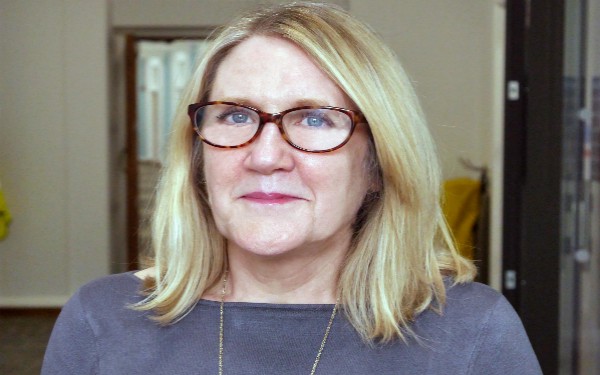
Last month, Bristol council received a ‘requires improvement’ rating from Ofsted, with the impact of senior leaders judged to be ‘good’. The council continues on a journey of what Ofsted saw to be “considerable progress in developing an environment in which good social work can flourish by changing the way in which services are delivered and significantly reducing social workers’ workloads”.
The latest of Community Care’s Ofsted Interview podcast series features Bristol council’s executive director of adults’, children, education and public health Dr Jacqui Jensen discussing the value of a practice model to the service, how the council has encouraged workforce development and increased staff retention and how investment into the service is being utilised.
Listen to the interview featuring Jensen talking about Bristol council’s developments below, or subscribe to the series on iTunes, and read our quick table for the key findings from Ofsted’s inspection.
Highlights from the Ofsted inspection: Bristol council
| Area of service | Ofsted inspection findings 2018 |
|---|---|
| The experience and progress of children who need help and protection | Requires improvement: Thresholds and referral pathways are well understood. While some families may have to wait for a service, those in greatest need are prioritised appropriately. The quality of help and support work provided is helping to avoid the need for statutory intervention by strengthening parenting capacity and building resilience. |
| The experience and progress of children who need help and protection | Requires improvement: Social workers value both the availability of managers sitting in close proximity to them and ‘mapping meetings’, which provide timely management oversight and reflection on practice. However, this management oversight is not well captured in supervision records. This makes it difficult to track decision-making and measure progress for children. |
| The experiences and progress of children in care and care leavers | Requires improvement: Services for care leavers have improved significantly since the last inspection, when the service was judged to be inadequate. Most care leavers experience continuity of support and have personal advisers who know them well. Professionals work together effectively to keep care leavers safe and reduce risk, but this is not always well reflected in written plans. The quality of pathway plans is too variable, some are very good but others are not aspirational or ambitious enough. |
| The experiences and progress of children in care and care leavers | Requires improvement: Children are seen regularly, according to their level of need, by their social workers. This includes those children placed out of area. The quality of recording of these home visits by social workers is mostly thorough, but some records lack depth and analysis of events. Children are routinely seen alone. However, although social workers are actively engaged in doing direct work with children, this was not always clearly evident from the children’s files. |
| The impact of leaders on social work practice with children and families | Good: There is now greater corporate ownership of services for children and young people. The local authority and its partners are sharply focused on the ‘strengthening families’ transformation programme which has led to improvements in collaborative and partnership working. During the inspection, inspectors saw strong joint working across services. |
| The impact of leaders on social work practice with children and families | Good: Senior leaders have taken decisive action to reduce caseloads. Over the course of the last 12 months, average caseloads have fallen markedly. Increasingly, staff have the time and capacity to deliver purposeful and well-targeted interventions. This is partly due to an increase in staffing establishment at key pressure points. This means that staff are now better placed to ensure that children and families make progress and experience better outcomes. |
| Overall effectiveness | Requires improvement: The local authority is in touch with virtually all of its care leavers, most of whom receive a good level of support. Services for disabled children, which were previously an area of weakness, are now a strength. However, despite these tangible improvements, outcomes for children and young people at every stage of their contact with children’s services are not yet uniformly good and some pockets of weaker practice remain. |
| Overall effectiveness | Requires improvement: Greater corporate ownership of and commitment to children’s services have resulted in strategic partnerships that are well developed and increasingly effective. Senior leaders, who are outward looking and innovative, have a good understanding of strengths and areas for improvement. |


 Assistive technology and dementia: practice tips
Assistive technology and dementia: practice tips  A trauma-informed approach to social work: practice tips
A trauma-informed approach to social work: practice tips 




 Find out how to develop your emotional resilience with our free downloadable guide
Find out how to develop your emotional resilience with our free downloadable guide  Develop your social work career with Community Care’s Careers and Training Guide
Develop your social work career with Community Care’s Careers and Training Guide  ‘Dear Sajid Javid: please end the inappropriate detention of autistic people and those with learning disabilities’
‘Dear Sajid Javid: please end the inappropriate detention of autistic people and those with learning disabilities’ Ofsted calls for power to scrutinise children’s home groups
Ofsted calls for power to scrutinise children’s home groups Seven in eight commissioners paying below ‘minimum rate for home care’
Seven in eight commissioners paying below ‘minimum rate for home care’
 Facebook
Facebook X
X LinkedIn
LinkedIn Instagram
Instagram
Comments are closed.